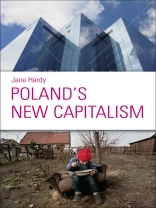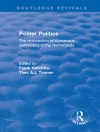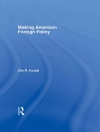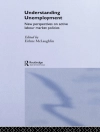This book explores the way that neoliberal policies have formed the basis of political transformation in Poland, championed by both post-communist and post-Solidarity governments.
Poland was central to the historic changes that took place across Eastern Europe at the end of the Cold War. It is the largest economy in the region, and was at the forefront of opposition to communism. Since then, neoliberal policies have controlled the country.
This book assesses the impact of these policies, the role of capital in the form of transnational corporations and foreign direct investment. The revival of trade unions and growth of new social movements are also explored as they challenge Poland’s new capitalism.
İçerik tablosu
Acknowledgements
Glossary
1. Introduction: Poland’s New Capitalism
2. Crisis, Revolt, Reform And Repression: Poland 1945 To 1990
3. The Leap To Global Capitalism: 1990 Onwards
4. ‘Not Just An Inside Job’: Constructing Consent For Neoliberalism
5. Catching Up Or Lagging Behind? Poland In The Global Division Of Labour
6. The ‘Shock Troops’ Of Foreign Capital
7. Every Day Life Under Neoliberalism: Work And Welfare
8. Workers’ Organisations In A Global Economy
9. ‘No More Stockings And Red Carnations’: Women, Transformation And Resistance
10. Political Parties And New Movements
11. Prospects For The Future
Bibliography
Index
Yazar hakkında
Jane Hardy was Professor of Political Economy at the University of Hertfordshire. She is now an independent writer and researcher. Hardy has published widely on the restructuring of the Polish economy, including her book Poland’s New Capitalism (Pluto, 2009). She is a member of the Editorial Board of International Socialism.












